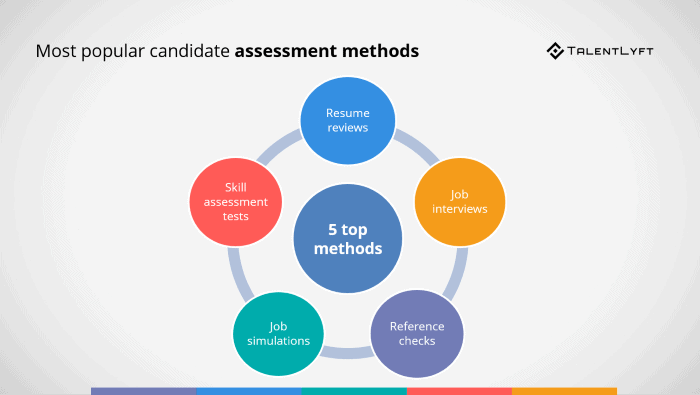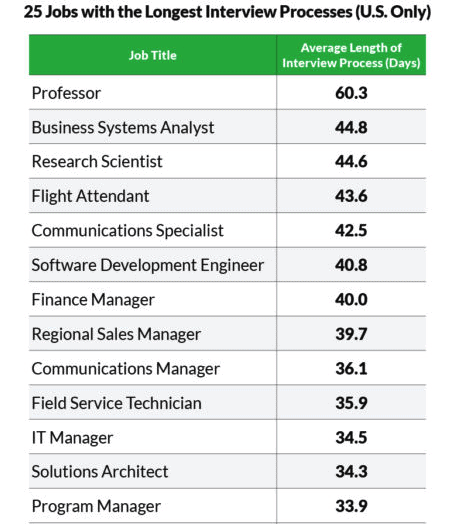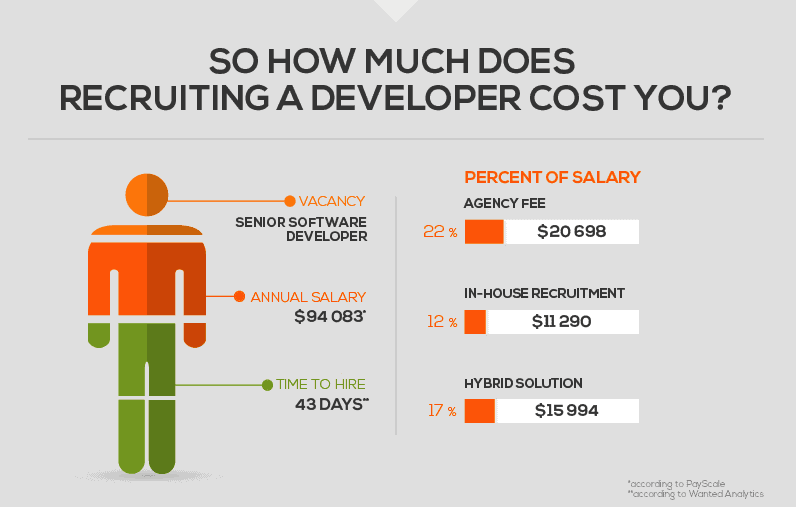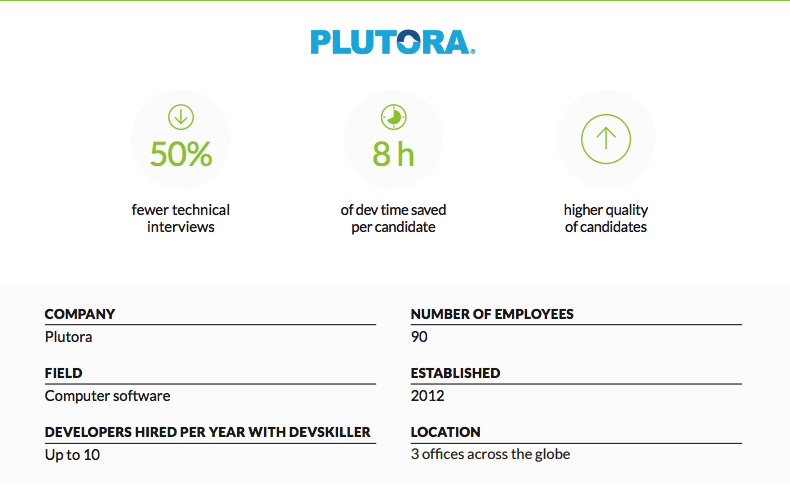
All you need to know about a skills assessment interview

Did you know that 78% of job applicants lie during the recruitment process, with 60% declaring a mastery of skill they hardly ever used? Shocking, isn’t it? Luckily, you can use a skills assessment interview to verify your candidates’ skills.
In this article, we’re going to tell you which employee skills assessment methods you can select from, why it’s worth investing your time in them, as well as give you a few tips on making your skills assessments interviews more effective. Let’s begin!
What is a skills assessment interview and is it any different from other skill assessments?
A skill assessment interview is a method of validating job applicants’ practical skills by inviting them to perform job-specific tasks. For instance, if you’re searching for a programmer who will work on an AI solution, you might want to verify their ability to use Python for an AI project. The same goes for non-development positions like QA testers.
Employee skills assessments can be conducted automatically and in-person. The most optimal setup is to first use a platform to test candidates’ skills, select the most appropriate ones, and then invite them to an in-person or remote skills assessment interview. This way recruiters can save time by eliminating applicants whose skills look impressive solely on paper.
Here are a few examples of job skill assessment methods:
- pair programming interviews – where the candidate works along with a programmer from inside the organization at one workstation. The job applicant writes code while the other programmer acts as an observer. These can be conducted in person or remotely.
- technical interviews – held by a technical person, for example, a senior programmer, team leader, or a CTO, depending on the company size and structure. They often involve challenges and assignments to check if candidates have the necessary tech skills to perform the job – they resemble an exam.
- interview coding tests (challenges) – candidates are given tests to complete in their own time, with the aim of screening their technical skills and coding proficiency
- psychometric tests – tests that assess candidates’ cognitive abilities, personality, and knowledge. They are sent to job applicants prior to face-to-face interviews
How is a skills assessment interview different/better than other skill assessment methods?
There are various skill assessment methods available in addition to skills assessment interviews: phone interviews, CV screening, reference checks, interview coding challenges, and trials. The first three are focused on what candidates SAY they can do, rather than on what they CAN actually do, which makes them far less reliable than skill assessment interviews.
The remaining two are too time-consuming. If candidates are not compensated for their time, they might refuse to participate in the recruitment process. It’s estimated that by 2021, there will be a programmer deficit of 1.4 million in the US alone, while the demand for software developers will grow by 21% by 2028.
What’s more, almost 60% of your potential candidates already have a job and the best talent is off the market within 10-15 days. This gives programmers the right to be picky, they don’t have to accept overly long recruitment processes. Instead, recruiters have to focus on creating candidate friendly job applications.
 Quelle: Talent Lyft
Quelle: Talent Lyft
Why should you make skill assessment interviews a part of your recruitment process?
Pre-employment skills testing should be part of every recruitment process, as they are more objective and credible than any other recruitment methods. On top of that, you can use job skill testing to:
- ensure you’re hiring the right candidates – by right we mean avoid hiring underqualified and overqualified ones. An overqualified candidate who hasn’t worked with the specific tech stack components that you use will probably cost more than the value they provide. While hiring the underqualified ones will result in productivity decrease, low work quality, and employee burnout, since more senior developers will have to take over some of their tasks
- speed up the hiring process – on average, it takes 40.8 days to hire a software developer. Considering the fact that the best tech talent disappears from the market within 10-15 days, it’s crucial to make the hiring process as efficient and effective as possible and, as a result, shorten the recruitment process

- eliminate unsuitable candidates early in the process – conducting pre-employment skills testing early in the recruitment process will help you focus on the suitable candidates, instead of wasting time on applicants who lack the right skills for the job
- remove bias – skills assessment interviews are based on evidence not on people’s opinions which helps to eliminate subjectivity making it a more reliable recruitment method
- reduce turnover – hiring the right talent reduces the probability of them leaving you. Job skills testing ensures a better fit – you’re satisfied with the hired candidate, while the new recruit is happy as the job matches their skillset and career expectations.
- save money – recruiting mistakes are very expensive. On average it costs $31,970 to recruit a software developer. Using skills assessment interviews ensures a better job fit, and has a positive impact on employee retention, which in turn saves you money

- Focus on problem-solving rather than yes/no questions – holding a skill assessment interview allows you to verify theoretical knowledge, this way you look at how someone tackles a challenge and how they think.
The main tips on conducting an effective skill assessment interview.
Now that you know why it’s absolutely necessary to include job skills assessment in your recruitment process, it’s time for some tips on how to do it effectively:
- Pre-screen candidates with automatic tools so you know whom to invite for a face-to-face technical interview/remote technical interview and soziale Kompetenz interview – eliminating unsuitable candidates early in the recruitment process is the best way to shorten your hiring cycle. Screening candidates with automatic tools such as DevSkiller is the best method for a quick skill verification, based on which you can decide whether they’re worth inviting to a skills assessment interview or not. By using DevSkiller, Plutora managed to cut down the number of in-person tech skills assessment interviews by 50%, save 8 hours of dev time per candidate, and get higher-quality candidates.

- Focus on technical skills – one of the reasons why recruitment processes last too long is that recruiters want to verify too many skills. While it might be tempting to check every single skill required for the job, it will make it too timely and too complex. This will result in a high candidate dropout rate. Try to focus on the most important technical skills rather than on soft skills, like good-communication or teamwork.
- Select the right testing method – after identifying the core skills for assessment, you’ll need to select the right skill verification method. There is a variety of testing methods you can choose from. While some skills might be assessed through tests or pair coding, for example, coding skills, others might require a more creative approach like the use of online scenarios.
- Personalize your skills assessments – avoid the one-size-fits-all approach, and try to use an approach that fits your candidate’s needs, preferences and the position they’re applying for. Ensure that each role has its own skill assessment – this is the least you can do.
- Allow candidates to use technical resources – as they solve the assignments, your candidates should be given the freedom to use any resources they want to, like they would normally. This shows you their ability to martial all of the resources available to them to find solutions.
- Provide feedback – after the candidates complete the skill assessment, be sure to give them feedback. They put a lot of time and effort into the recruitment process, and even if you decide not to hire them, the least you can do is to tell them why. A lot of candidates complain about not ever hearing from the recruiter after participating in a hiring process. This leaves a bad impression and discourages the candidate from ever applying again
Final thoughts
Designing an effective recruitment process is an art. Not only does it have to be short but it also has to accurately verify if the candidate is suitable for the job. This is why it’s necessary to make the skills assessment interview part of every hiring process. They allow you to focus on those who you’ll know have the right skills for the position you want to fill.
Using automatic skill assessment tool like DevSkiller will significantly cut your recruitment time and boost your number of high-quality hires, cutting down the number of skills assessment interviews you need to conduct. While there are numerous recruitment methods that you can select from, job skill testing is more objective and credible than other recruitment methods. This is not to say that tech recruiters should limit themselves to skills assessment interviews solely. The most effective recruitment processes use a combination of methods, nevertheless, it’s worth starting with automatic skills screening to make your process more efficient.
Image credit: Maranda Vandergriff auf Unsplash




